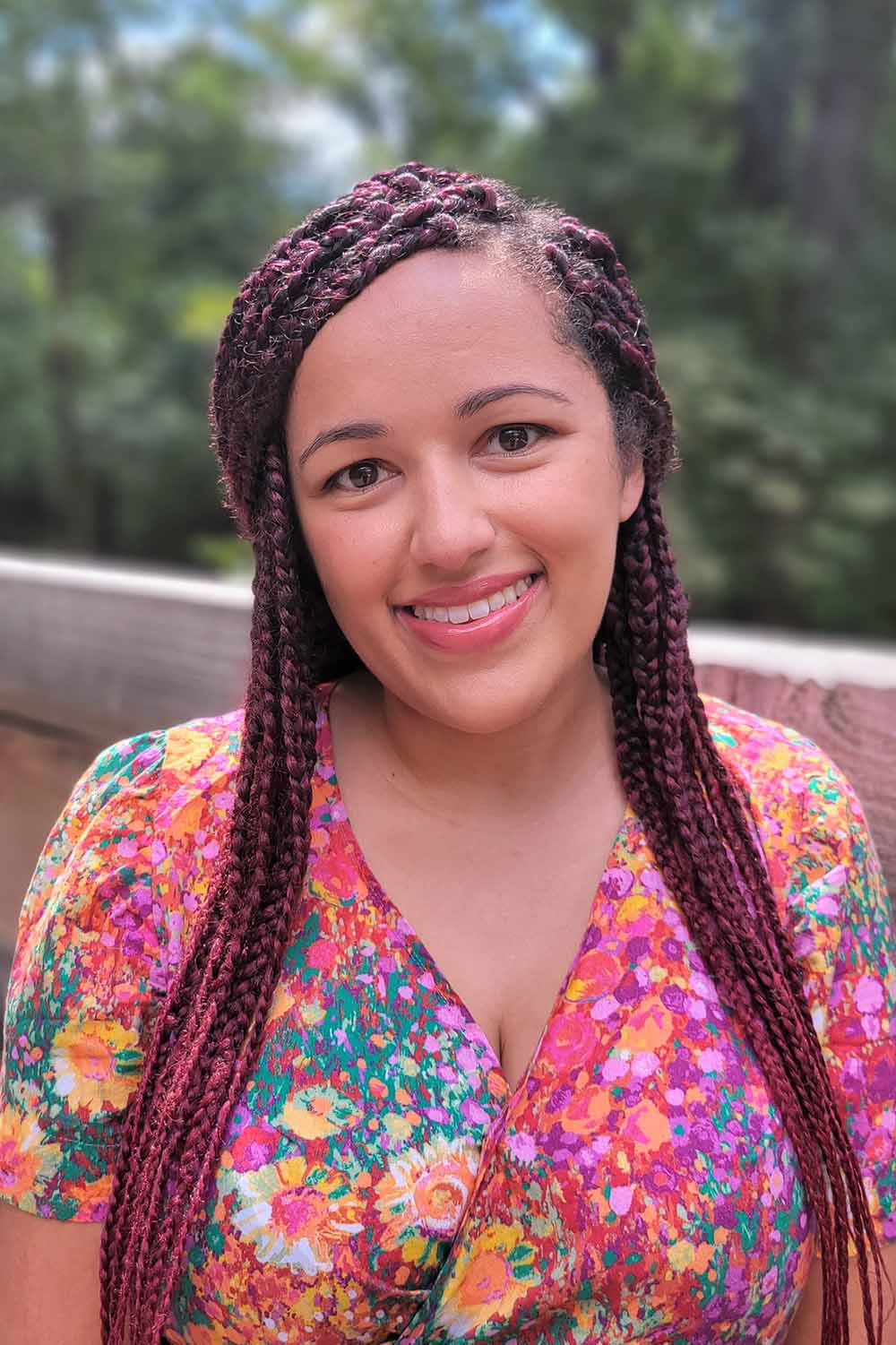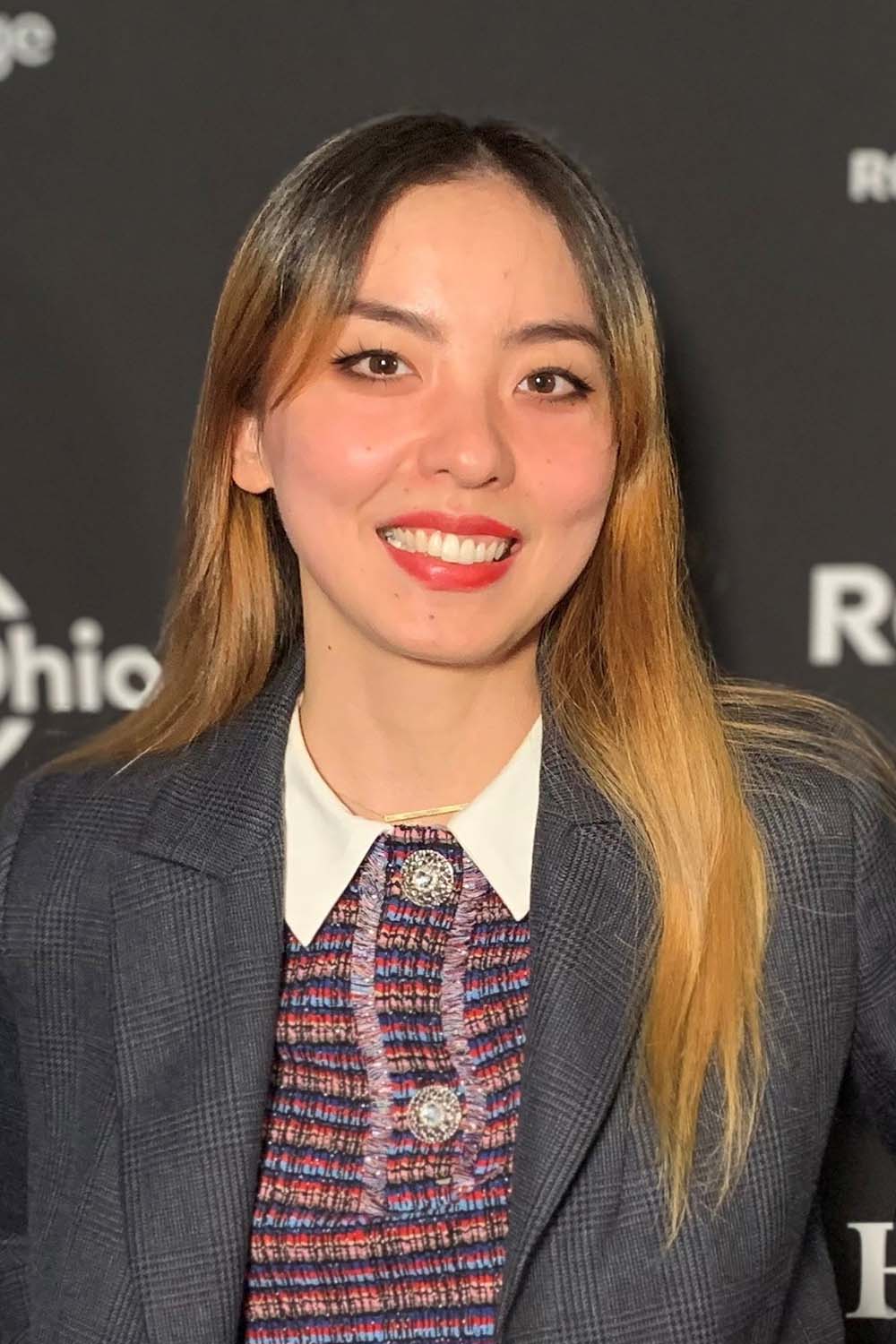Two Comets Shine Brightly on Forbes’ 30 Under 30 for Science List
By: Stephen Fontenot | Feb. 3, 2023

University of Texas at Dallas psychology doctoral student Desiree Jones MS’20 and physics alumna Emma Xu BS’15 have been named to the 2023 30 Under 30 for Science list by Forbes magazine.
The publication selects 600 honorees annually who represent the brightest members of the next wave of leaders and entrepreneurs across 20 fields.
Jones, who came to UT Dallas as a graduate student in 2018, studies how the lives of autistic people are affected by the perceptions and biases of their peers, as well as stigmas faced by autistic individuals. She became interested in autism research after working with autistic individuals while earning a bachelor’s degree in neuroscience and psychology from Wellesley College and as a research assistant at The University of North Carolina at Chapel Hill. She earned her UTD master’s degree in applied cognition and neuroscience.
“The stigmas toward autistic people are analogous to those toward marginalized groups such as LGBT populations or racial and ethnic minorities,” Jones said. “When people are less likely to interact with an autistic person, it limits an autistic individual’s social opportunities and can predispose them to poor outcomes such as isolation and mental health conditions.”
Jones said that reducing negative societal perceptions of autistic people can improve their interactions and outcomes, but it will require better educating the public about autism.
“We essentially segregate autistic people from society because they’re different,” she said. “Instead, we need to include autistic people as advisors, writers and researchers, and listen to their perspectives on their own lives. In general, greater effort needs to be put into understanding these individuals, their unique experiences and the supports they might need to succeed.”
Jones’ doctoral research project, which includes participants of multiple races, examines peer perceptions of videos of autistic individuals, who are then evaluated to determine whether a greater degree of stigma is associated with higher levels of depression, loneliness or anxiety — and if there is a compounding effect from intersecting identities, like ethnicity.
“Desi is a rigorous, imaginative and productive researcher who prioritizes meaningful community engagement,” said Dr. Noah Sasson, professor of psychology in the School of Behavioral and Brain Sciences and Jones’ dissertation advisor. “There’s no ‘ivory tower’ in Desi. She wants her work to make a difference. I think it already has. I’m tremendously proud of what she’s accomplished and can’t wait to see what she does next.”
Jones plans to complete her doctorate this summer and hopes to remain in academia.
“I’d love to continue to research mental health, race and autism, as well as perceptions of autistic people by their peers, and apply autism acceptance training to a wider range of situations, such as the workplace,” she said. “Hopefully, such work can lead to better outcomes and acceptance for autistic people, and more opportunities for interactions and inclusion.”
Alumna Found Research Home at UTD

Xu said her transfer to UT Dallas as a sophomore — with a full scholarship — opened “a new chapter” in her life. Financial hardships, housing insecurity and other personal challenges had made it difficult for her to pursue her interest in physics.
“I was low-income, so the funding alleviated a lot of financial stress,” said Xu, who earned her bachelor’s degree in physics in the School of Natural Sciences and Mathematics. “I didn’t have to work multiple part-time jobs to pay for my education.”
Dr. Robert Wallace, professor of materials science and engineering and holder of the Erik Jonsson Distinguished Chair in the Erik Jonsson School of Engineering and Computer Science, was Xu’s research advisor.
“Professor Wallace was a great mentor to me. As a sophomore with no prior research experience, he took me on,” Xu said. “He encouraged me to apply for extra research opportunities, such as two National Science Foundation (NSF) summer research programs I took part in at Georgia Tech and the University of California, Berkeley. Those experiences, on top of my experiences in his lab, put me in a good position to win a graduate research fellowship from the NSF and get accepted to competitive grad schools.”
While at UT Dallas, Xu helped revive the local chapter of the Society of Physics Students, serving as its president. After her graduation, she moved to the San Francisco Bay area to work with clean-energy startups before beginning her PhD studies at Columbia University in 2017.
Xu is co-founder and CEO of Avant Photonics, a startup company that is developing viral disinfection technology to enable personal protective equipment to be reused multiple times. The technology is based on research she is doing at Columbia, from which she expects to earn her PhD this summer.
Media Contact: Stephen Fontenot, UT Dallas, 972-883-4405, stephen.fontenot@utdallas.edu, or the Office of Media Relations, UT Dallas, (972) 883-2155, newscenter@utdallas.edu.





